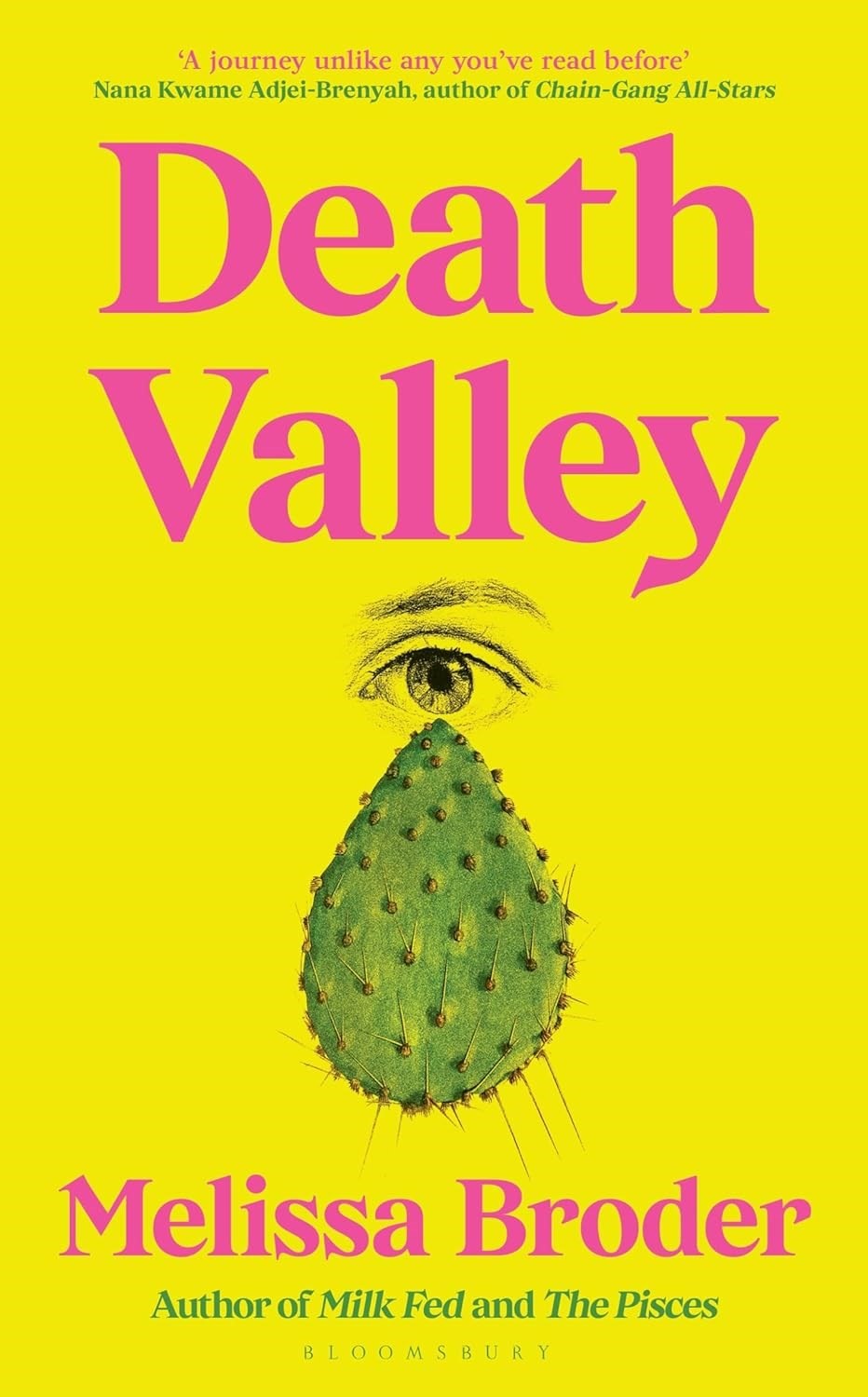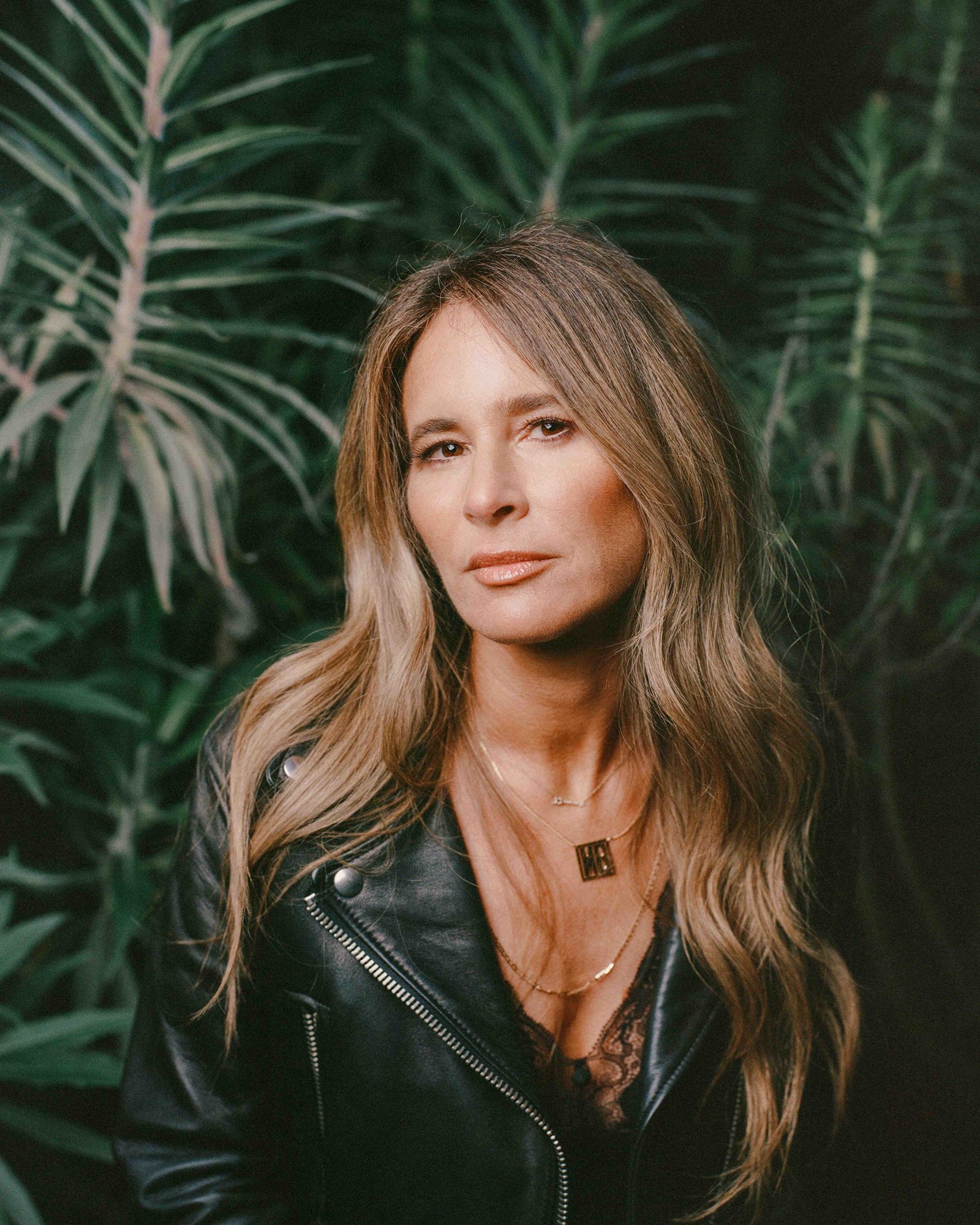Let me tell you a secret: I fall asleep listening to Melissa Broder. No I don’t know her, and OK, maybe it’s not every night. But since reading The Pisces, Broders’ first novel, it’s been many. Working your way through her archive will inevitably lead you to the podcast Eating Alone in My Car, and here is where we reside so often as I drift off, alone together in a hot vehicle, comparing 7-Eleven tuna sandwiches. The Pisces may have started me off – it’s a book you want to give to people over and over again – but thankfully, Broder has been generous in her contributions, from the excruciatingly brilliant So Sad Today essays to numerous poetry collections.
Seemingly without the option to not bare her soul, Broder’s writing is defined by an excavation of feeling cut through with hilarious, internet-brained cultural observation. Her second novel Milk Fed, a story of binge-eating, coming out and conflict, was at once heavy with emotional rawness, honesty and pain, and lit up by the glitter of Los Angeles’ frozen yoghurt shops and a celestial Chinese restaurant. When I think about that novel I feel a vague sense of Christmas: tinsel and tears. Broders’ third novel Death Valley, released in the UK this week, deals with an entirely new set of themes. The passing of her father led her to interrogate ideas of grief, mourning and the choices we’re forced to make when faced with death. There are parallels with her own experiences documented in her podcast – the characters’ father resides in an ICU, her protagonist has a complicated relationship with her chronically ill husband – but the novel bleeds out into fantasy as the desert heats up. As we stray further from the habitable world, Broder introduces metaphor and hallucination. Her character hears voices in the hot empty expanse that promise to both guide her home and lead her deeper into the nowhere.
Lost in the desert, Broder’s protagonist reckons with the siren song of oblivion and, for anyone who’s experienced loss, the temptation to walk back out into the emptiness rings profoundly true. In a dream come true moment I spoke to Melissa (in real life, on the phone!) about Death Valley, her approach to writing and whether you can ever escape the voice in your head.

Bertie Brandes: Hi Melissa. OK, so to kick us off the broadest sense, what is Death Valley about?
Melissa Broder: Death Valley, I would say, is a comedic odyssey through the desert of grief and also a wilderness survival tale.
Bertie Brandes: Why were you drawn to the desert particularly? What was the story behind that?
Melissa Broder: My father was in an accident in December of 2020 and he was in an ICU for six months before he died. He was on the East Coast and I was on the West Coast and I wasn’t able to go see him for a while, because of Covid no one was allowed in. My sister lives in Las Vegas and I live in Los Angeles and I was driving back and forth through the desert to visit her so we could be together during this time at least. I was driving through Baker, California which is home of the world’s largest thermometer when the idea for the book came to me.
Bertie Brandes: How did that translate into a fleshed out novel?
Melissa Broder: Once the idea came to me I began writing it but I didn’t know that the character would get lost in the desert. I later went on a research trip to Death Valley and decided to take a little hike in this area called Zabriskie Point where nobody ever gets lost. I didn’t tell anyone where I was going and I got totally lost. It had only been 45 minutes but I thought I would never make it back. I did what you’re not supposed to do, which is that I panicked and got caught up climbing this rock face to try to get back. When I got back to my car and stopped crying I was like, “Oh OK, now I know what has to happen in the novel.”
Bertie Brandes: Was there a certain feeling of being in the desert that connected to the experience of grieving or this pre-grieving time?
Melissa Broder: Yeah, I think the desert can also feel sort of endless, you never know when you’re going to get out. The other thing is that, like nature, we are not in control of grief, right? I found that the desert could be seen as an archetype.
“Like nature, we are not in control of grief, right? I found that the desert could be seen as an archetype” – Melissa Broder
Bertie Brandes: What I found so interesting about the setting of Death Valley was that compared to The Pisces and Milk Fed where food and sex is a constant focus for the characters, in the desert there’s no space for appetite – there is just survival.
Melissa Broder: You know, I didn’t think of it that way. In Milk Fed, there’s so much in terms of choice; a toppings bar and all its options. In the desert, it’s just water. And this protagonist is not a nature girl, she’s coming from eight types of beef jerky, she’s coming from this land of choice. In the desert, you’re stripped down to the very elements – I think that death and illness and grief can really do that to us.
Bertie Brandes: When you were researching the novel, did you look up how to stay alive in the desert?
Melissa Broder: I did, totally. I read this book called The Desert Survival Guide by David Alloway and that really shaped the plot. I’m not really a nature girl either, I’ll go into nature and then I go home. The guide really helped me because I was like, ‘I don’t know how much water you need to stay alive.’ That research and learning the necessity of survival needs really helped me shape the arc of the book.
Bertie Brandes: You’ve spoken before about dictating the first draft of your previous novels, did you use that technique for Death Valley as well?
Melissa Broder: I didn’t actually. I think because the book was inspired by my father and I started writing it the day after he died, I wrote it differently to my other books. I really wanted each section to be like a diamond, so I wrote it in a way that was more like poetry and line-edited along the way.
Bertie Brandes: Completely, you can really focus on the really subtle aspects of language. There’s a line in the novel where you describe the word ‘depression’ as “a failure”, which is such a beautiful insight.
Melissa Broder: The word depression conveys a downward motion, for sure, a sadness. But it doesn’t convey the whole constellation of symptoms that come with it. It doesn’t really convey the full range of the experience.
“The word depression conveys a downward motion, for sure, a sadness. But it doesn’t convey the whole constellation of symptoms that come with it” – Melissa Broder
Bertie Brandes: What do you read if you want to feel comforted?
Melissa Broder: I love May Sarton’s Journal of a Solitude and The House by the Sea. She was a novelist and a poet but I actually love her journals. I’m obsessed with her journals.
Bertie Brandes: I read Veronica by Mary Gaitskill for the first time recently and I sent a passage of it to someone I know because I thought it was so beautiful, and he was like, “This is going to make you feel more insane, this is so chaotic.” But there is something about reading that kind of intimate writing, especially female characters who are so emotionally vulnerable, that can be at once very difficult and incredibly comforting.
Melissa Broder: Definitely. I feel that way about Long Live the Post Horn! by Vigdis Hjorth – it’s about a woman sort of having an existential crisis.
Bertie Brandes: Finally, you’ve spoken really honestly about struggling with your inner critic. Having now published three fantastic novels, is the voice in your head a little quieter?
Melissa Broder: It’s still loud as ever.
Bertie Brandes: No, really?
Melissa Broder: I think I trust myself on the page more, but in life it’s still incredibly loud.
Bertie Brandes: I guess it’s learning how to live with it, right?
Melissa Broder: Exactly.
Death Valley by Melissa Broder is published by Scribner, and is out now.
